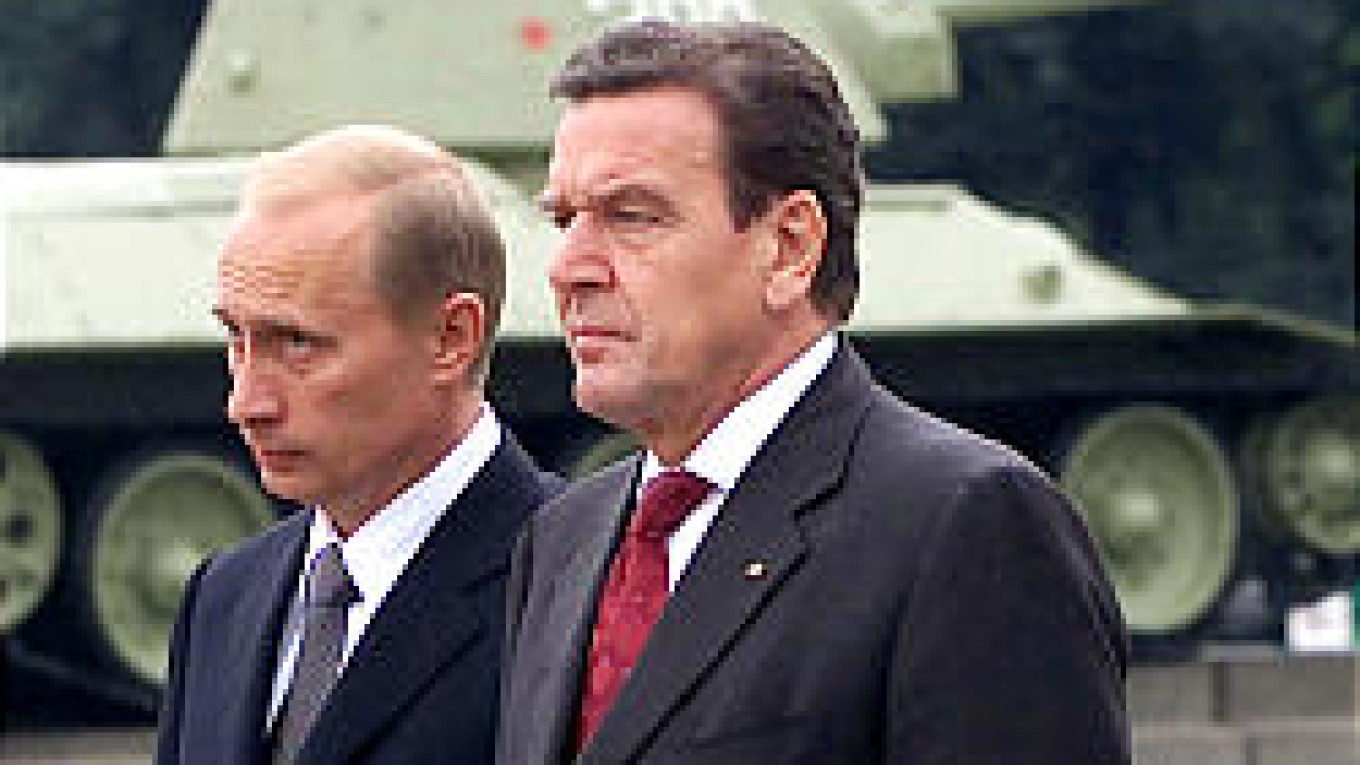"The Cold War is over. The world is at a new stage of development. Without a sustainable, international security policy we will never have stability," Putin told the Bundestag in a speech that drew a standing ovation from deputies.
Putin emphasized his country's close political and economic links with Germany, a country he served in as a KGB officer in the 1980s. He won praise Tuesday from German business executives.
Putin is the first Russian president to address the Bundestag, a rare privilege for a foreign dignitary. His speech was punctuated by bouts of applause.
"We got so used to living in two opposing systems. The world has become much, much more complicated," Putin said. "We have done a lot in the security area. Russia is a friendly European country. Stable peace is a goal for our country which has been hit by so many wars over the centuries," he said.
Putin's long-scheduled three-day visit to Germany began in Berlin amid heightened security on a day when Egyptian President Hosni Mubarak was also in town.
"It is noteworthy that Russia has offered its support on all levels in the fight against terrorism," Chancellor Gerhard Schr?der told a joint press conference after meeting Putin.
Russia has also faced down threats from Islamic militants within its borders, Putin said. "International terrorists made clear their wish to set up a fundamentalist Moslem state between the Caspian Sea and the Black Sea," he said.
"I met Moslem leaders just before I left who said they wanted to run a conference in Moscow called 'Islam against Terror.' We should support this," he said to loud applause in the Bundestag.
German business executives praised Putin for improving the investment climate in Russia but said internal security still left a lot to be desired.
"Rating agencies, banks and investors are still cautious about Russia. There are still some uncertainties -- the legal uncertainty continues," said Hubert Pandza, chief executive of Deutsche Bank in Moscow, told a conference on Russia. However, Putin's reforms had done much to improve the situation in Russia, he said.
Speaking at the same conference, Economic Development and Trade Minister German Gref urged German investors to come to Russia. "I do not want investors to feel disadvantaged in our country. We will leave no stone unturned to achieve this goal," Gref said.
Eike Mueller-Elscher, who is responsible for joint ventures at German gas company Wintershall AG, which is Gazprom's biggest partner, said: "I have the impression that positive developments are in sight."
Martin Orth, who works for KPMG Business Development, said improving internal security was a priority.
"Russia needs more reform particularly in internal security. There is a feeling among investors that money could be going into false hands. There is still a mafiosa image prevalent," said Orth.
"Investors sometimes think investing money in Russia is like pouring water into an unplugged bath," said Orth, who spent a year in Russia in 1997 and who deals with Russian businesses.
A Message from The Moscow Times:
Dear readers,
We are facing unprecedented challenges. Russia's Prosecutor General's Office has designated The Moscow Times as an "undesirable" organization, criminalizing our work and putting our staff at risk of prosecution. This follows our earlier unjust labeling as a "foreign agent."
These actions are direct attempts to silence independent journalism in Russia. The authorities claim our work "discredits the decisions of the Russian leadership." We see things differently: we strive to provide accurate, unbiased reporting on Russia.
We, the journalists of The Moscow Times, refuse to be silenced. But to continue our work, we need your help.
Your support, no matter how small, makes a world of difference. If you can, please support us monthly starting from just $2. It's quick to set up, and every contribution makes a significant impact.
By supporting The Moscow Times, you're defending open, independent journalism in the face of repression. Thank you for standing with us.
Remind me later.


